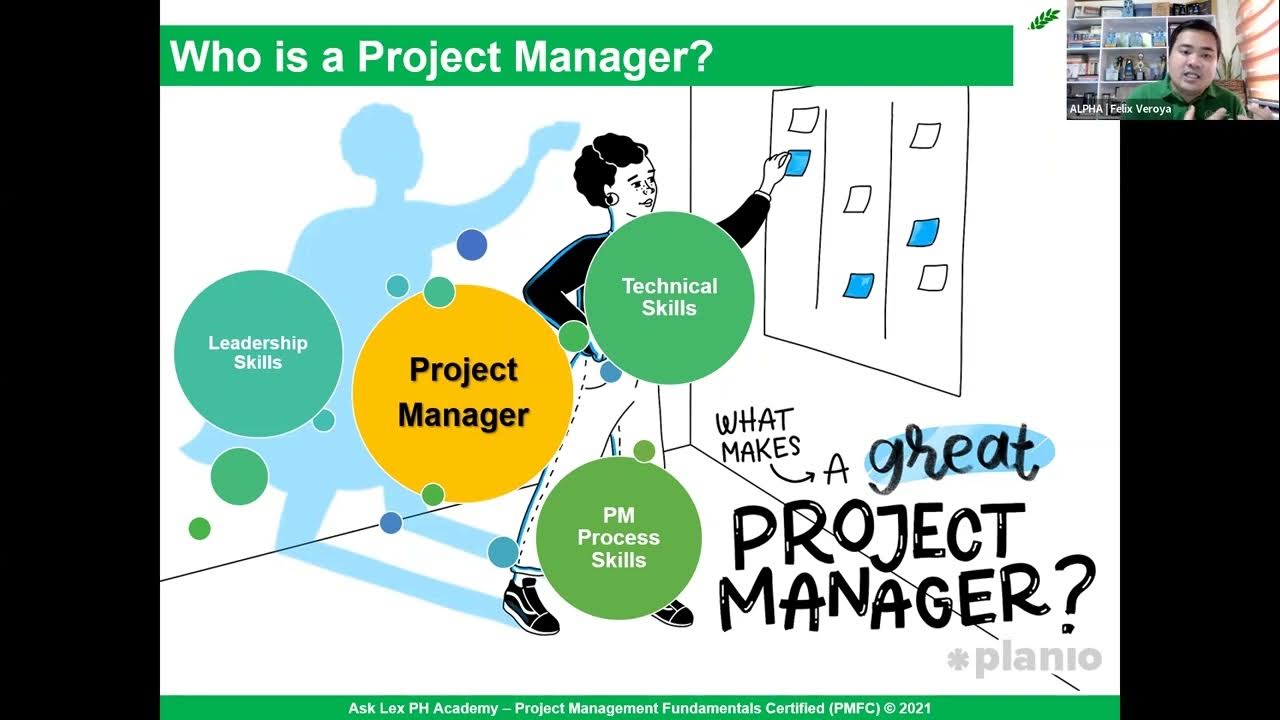Ideal Skills of an Operations Manager | Simplicity Consultancy
Summary
TLDRThe video script highlights essential skills for operations managers, focusing on technical expertise, collaboration, and strategic thinking. Key abilities include project planning, risk assessment, financial management, decision-making, and problem-solving. Effective communication, time management, and personnel leadership are emphasized, alongside the importance of flexibility and adaptability in fast-paced environments. Operations managers are tasked with overseeing teams, product development, and business processes, requiring strong organizational and interpersonal skills. The script also encourages continuous improvement in areas like HR, supply chain management, and customer service to drive business success.
Takeaways
- 📈 Organizational leaders need a broad range of skills to manage roles effectively, from finance to team communication.
- 👥 Collaboration, technical expertise, and strategy are key to operational management and business efficiency.
- 🎯 Strong operational management skills lead to better project planning, delegation, adaptability, and financial understanding.
- 💡 Technical knowledge, such as data processing and automation, is crucial for tracking processes and making informed decisions.
- ⚖️ Risk assessment and strategic planning are essential to mitigating potential issues and guiding business success.
- 💼 Operations managers must manage finances, personnel, and decision-making processes to maintain company productivity.
- 🛠 Problem-solving and decision-making skills are necessary for addressing challenges in supply chain management and employee coordination.
- 🗣 Excellent communication skills, both written and verbal, are critical for leading teams, negotiating, and managing business interactions.
- 🕰 Time management, including setting deadlines and organizing schedules, is vital to ensuring projects stay on track.
- 🌱 Flexibility, empathy, and adaptability in leadership are important for fostering teamwork, innovation, and adjusting to changing environments.
Q & A
What are the essential skills for an operations manager to be successful?
-Essential skills for an operations manager include technical expertise, collaboration, strategy development, project planning, adaptability, financial management, decision-making, problem-solving, communication, and leadership.
Why are organizational business talents crucial for an operations manager?
-Organizational business talents are crucial because they help operations managers handle key responsibilities like project management, financial oversight, and team coordination, which are vital for maintaining efficiency and productivity within a company.
How do operational managers use technical know-how in their roles?
-Operational managers use technical know-how to handle industrial automation, data entry, and technology for retrieving project documentation and tracking functional elements, which are all necessary for the smooth functioning of the supply chain.
What role does data processing play in operational management?
-Data processing is essential for managing real-time data related to financial transactions, supplier deliveries, and product development, helping operational managers organize, analyze, and distribute critical information for decision-making.
How is risk assessment a critical skill for operations managers?
-Risk assessment allows operations managers to identify potential risks in business operations and develop strategies to mitigate these risks, ensuring smooth product development and the success of new initiatives.
Why is strategic planning important for operations managers?
-Strategic planning is important because it helps operations managers anticipate potential challenges, create innovative solutions, and ensure that teams work efficiently to achieve business goals.
What are the key financial management tasks for an operations manager?
-Key financial management tasks include making cash flow decisions, tracking company expenses and revenues, forecasting profits, and assisting in the preparation of financial reports to ensure proper budgeting and growth planning.
What is the significance of personnel management in operational management?
-Personnel management is significant because it involves delegating tasks, organizing staff schedules, conducting performance appraisals, and ensuring that teams work cohesively, which is essential for achieving organizational goals.
How do operations managers benefit from strong communication skills?
-Strong communication skills help operations managers convey technical information, lead meetings, negotiate deals, and ensure that team members understand their roles and responsibilities, ultimately improving collaboration and performance.
What personality traits are beneficial for an operations manager?
-Personality traits like empathy, adaptability, and strong interpersonal skills are beneficial for building trust, fostering collaboration, and motivating teams, which are essential for effective leadership in operational management.
Outlines

Dieser Bereich ist nur für Premium-Benutzer verfügbar. Bitte führen Sie ein Upgrade durch, um auf diesen Abschnitt zuzugreifen.
Upgrade durchführenMindmap

Dieser Bereich ist nur für Premium-Benutzer verfügbar. Bitte führen Sie ein Upgrade durch, um auf diesen Abschnitt zuzugreifen.
Upgrade durchführenKeywords

Dieser Bereich ist nur für Premium-Benutzer verfügbar. Bitte führen Sie ein Upgrade durch, um auf diesen Abschnitt zuzugreifen.
Upgrade durchführenHighlights

Dieser Bereich ist nur für Premium-Benutzer verfügbar. Bitte führen Sie ein Upgrade durch, um auf diesen Abschnitt zuzugreifen.
Upgrade durchführenTranscripts

Dieser Bereich ist nur für Premium-Benutzer verfügbar. Bitte führen Sie ein Upgrade durch, um auf diesen Abschnitt zuzugreifen.
Upgrade durchführenWeitere ähnliche Videos ansehen

PENGANTAR BISNIS - Kemampuan yang Harus Dimiliki Manajer - 5.2

Who is a project manager_rev1

Basic Skills in Management

Never draft a PRD again | the magic of ChatPRD explained!

What about someone working with a line manager unqualified in the technical area?

ESCCE 05-21-24 - Enterprise Support Getting the Most Value | AWS Events
5.0 / 5 (0 votes)
